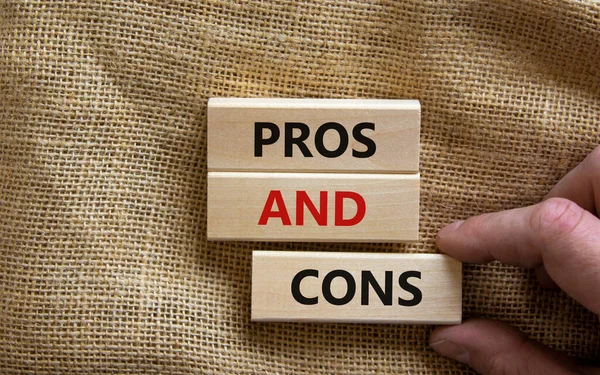
Understanding the Two Models
The pharmaceutical industry in India has grown rapidly over the past few decades, becoming one of the world’s leading producers of generic medicines and healthcare products. As demand for accessible and affordable healthcare increases, companies have adopted different marketing and distribution models to reach doctors, hospitals, retailers, and end consumers. Among these, PCD Pharma Marketing and Ethical Pharma Marketing stand out as two dominant models, each serving different business structures and goals.
PCD Pharma Marketing (Propaganda Cum Distribution) is a business model where pharmaceutical companies offer marketing and distribution rights to independent distributors, retailers, or entrepreneurs. These partners promote the company’s products using company-provided promotional material and operate using their own network and territory. This model is extremely popular among small and mid-sized entrepreneurs because it requires low investment, no manufacturing setup, and offers business independence.
On the other hand, Ethical Pharma Marketing follows a more traditional and structured approach. Here, the company builds its own medical representative (MR) team who promote medicines directly to doctors, clinics, and hospitals. Prescriptions generated by doctors drive product demand at pharmacies. In this model, branding, reputation, and product quality play a central role in influencing prescribing decisions. Ethical marketing is commonly used by large or well-established pharmaceutical corporations with wider distribution and stronger market presence.
Both models operate within the same pharmaceutical ecosystem but differ significantly in strategy, investment, marketing approach, and control. While PCD Pharma focuses on distributor-based growth, Ethical Pharma emphasizes doctor-based prescription demand. Each model carries unique advantages, limitations, and suitability depending on business goals, financial capacity, and market experience.
In today’s increasingly competitive pharma landscape, choosing the right model can shape the growth, identity, and future scope of a business. Entrepreneurs looking for flexible entry into the market may find PCD more suitable, while organizations aiming for a strong branded presence may prefer ethical marketing. Understanding the pros and cons of each can help businesses make informed decisions, optimize resources, and achieve sustainable market positioning.

PCD Pharma Marketing Model — Advantages and Limitations
What is PCD Pharma Marketing?
PCD Pharma is a business model where companies grant exclusive monopoly rights to distributors or franchise holders in specific geographical regions. The franchise holder promotes products and grows market demand under the company brand name.
Advantages of PCD Pharma Marketing
- Low Investment & Low Risk
PCD Pharma requires minimal financial entry. There is no need for manufacturing plants, large warehouses, or heavy manpower. This makes it ideal for startups, small business owners, or individuals entering the pharma industry for the first time.
- Monopoly Rights Offer Business Freedom
Franchise holders can operate independently without competition from the same company in their region, allowing them to build stable, long-term business relationships with pharmacies and doctors.
- No Need for Field Force or High-Level Marketing Strategy
The company provides promotional tools such as visual aids, product samples, detailing bags, and marketing leaflets. The franchise holder only needs basic networking skills to promote products.
- Wide Product Range & Easy Market Expansion
Most PCD companies offer hundreds of formulations across tablets, capsules, syrups, injections, ayurvedic products, and more. This gives distributors the flexibility to expand product offerings easily.
- Quick Profitability
With comparatively lower operating costs, earnings and profit margins are high, enabling faster returns on investment.
Limitations of PCD Pharma Marketing
- Limited Brand Recognition
Since marketing is done individually by distributors, brand awareness may remain localized and inconsistent across regions.
- Quality Control Depends on the Manufacturer
Franchise holders depend fully on the company for product efficacy and quality. Choosing the wrong manufacturer may negatively impact reputation.
- Requires Networking Skills
Success in PCD depends largely on personal relationships with doctors, retailers, and stockists. Those lacking local market connections may face challenges initially.
- Competition from Other PCD Companies
The model is highly popular and widely adopted, meaning many companies offer similar products in the same cities, which may lead to pricing competition.
In summary, PCD Pharma is excellent for entrepreneurs seeking flexible, low-cost, and quick-to-start business opportunities, but requires careful company selection and relationship-building to grow sustainably.
Ethical Pharma Marketing Model — Strengths and Challenges
What is Ethical Pharma Marketing?
Ethical Pharma Marketing involves promoting medicines directly to doctors through trained medical representatives. Doctors prescribe medicines based on product efficacy, research backing, and company reputation. This model requires structured planning and a strong brand identity.
Strengths of Ethical Pharma Marketing
- Stronger Brand Value & Market Reputation
Since companies interact directly with healthcare professionals, their brand becomes widely recognized and trusted.
- Better Control Over Market Strategy
Companies manage pricing, promotional campaigns, and distribution channels directly, ensuring uniform market presence.
- Higher Long-Term Revenue Stability
Once prescription loyalty is built, demand continues consistently, making this model highly sustainable.
- Emphasis on Research and Quality
Ethical marketing often promotes scientifically backed formulations, enabling better patient outcomes and stronger customer trust.
Challenges in Ethical Pharma Marketing
- High Investment Requirement
Companies must recruit, train, and manage medical representatives, distribute samples, and conduct promotional activities — all of which increase operational cost.
- Time-Consuming Market Penetration
Building doctor trust takes time. Immediate sales outcomes are rarely expected.
- Regulatory Compliance and Competition
The pharma sector is highly regulated, and competition from established brands can be intense.
- Requires Strong Leadership and Field Force Management
Managing sales teams, maintaining ethics, and ensuring performance requires disciplined organizational oversight.